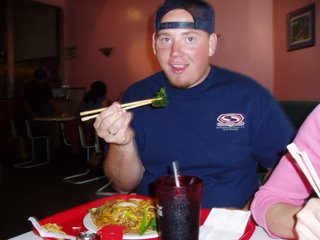Book Reflection - Ethnography: Step by Step
This book as per the title is a study on the specifics of doing ethnographic research written by David Fetterman. In my reflection yesterday, I detailed ethnography as being an anthropological study of specific people groups. In this book, specific steps are detailed by the author on what ethnography is used for, particular methods for gathering research, tools and ethical obligations while doing ethnographic research. This book was somewhat technical, so my reflection will be rather short and detail just some of the new ideas that the author presented.
One particularly popular method of gathering research is participant observation. As is clear in the name, this approach combines involvement in individuals' lives while having some distance to gather research and collect data as an observer. Fetterman writes,
Participant observation is immersion in a culture. Ideally, the ethnographer lives and works in the community for 6 months to 1 year or more learning the language and seeing patterns of behavior over time. Long-term residence helps the researcher internalize the basic beliefs, fears, hopes, and expectations of the people under study. The simple, ritualistic behaviors of going to the market or to the well for water teach how people use their time and space and how they determine what is precious, sacred, and profane (35).
One of the important things that participant observation adds to ethnographic research is the early research that comes with insider observation. This approach lays the ground work for more formal research including interviews, questionnaires, etc. It also helps the ethnographer begin to piece together an understanding of the culture and the worldviews of the people, which is incredibly important in being able to build relationships with those of the other community.
Additionally, the use of participant observation is very useful as a first step in entering a new culture. It is very useful in finding "key informants" or "people of peace" as some people call them. These are individuals who "can provide detailed historical data, knowledge about contemporary interpersonal relationships (including conflicts), and a wealth of information about the nuances of everyday life" (48). This was a very important concept in my Community Organizing class from the Spring Quarter. We were looking for these key informants/actors as we were getting to know the needs of the community and the dreams of the residents. As a follower of Jesus, looking for people of peace is very similar. As we see in the Bible, especially in the Gospels and Acts, the disciples/apostles went out looking for people of peace who were open to the Gospel of Jesus and desired for building community.
Finally, the last concept I want to write about is one of the described types of ethnographers called advocate ethnographers. These ethnographers "allow participants to define their reality, consider their view about the ideal solution to their problems, and then take an active role in making social change happen" (135). Where ethnography can be criticized for being non-committal, this bridges the gap between research and participation. After the ethnographer gathers their research legitimately and ethically, the findings can be presented to influence a decision by the people. Wonderful! I like it!
As always, feel free to add any comments, concerns, questions. Thanks.


2 comments:
Hey Andy! I found you by subscribing to a Google Alert on the word 'ethnography.' Don't want to be a spammer, but from looking at your blog I thought you might be interested in what the group I work with is doing to equip Christians with ethnography skills. Check out http://www.calebresources.org/node/270
as i read the paragraph on the "key informant", i was thinking, "this is what we did in community organizing!" and then you said it yourself! great minds think alike!!
the "advocate ethnographers" sounds like what we were learning about in development tools and practices... doing "development" in a way that empowers the people to decide for themselves who they are and what they need, rather than telling them and doing it for them. this concept is a good one to keep in the back of my mind! i think we'll be using this book in my research methods class this fall... thanks for the preview!
and funny, i saw that caleb resources class and was wondering if it would be worth the time and money, and then there's a comment about it here on your blog... interesting...
Post a Comment